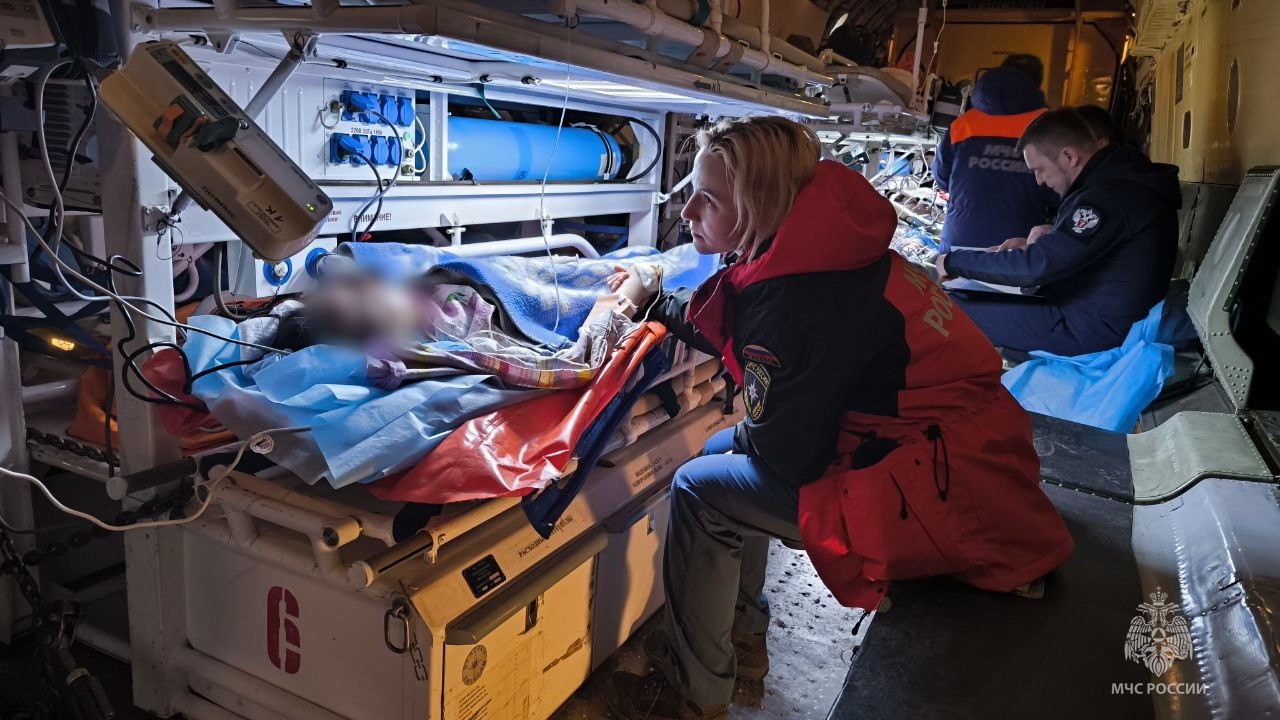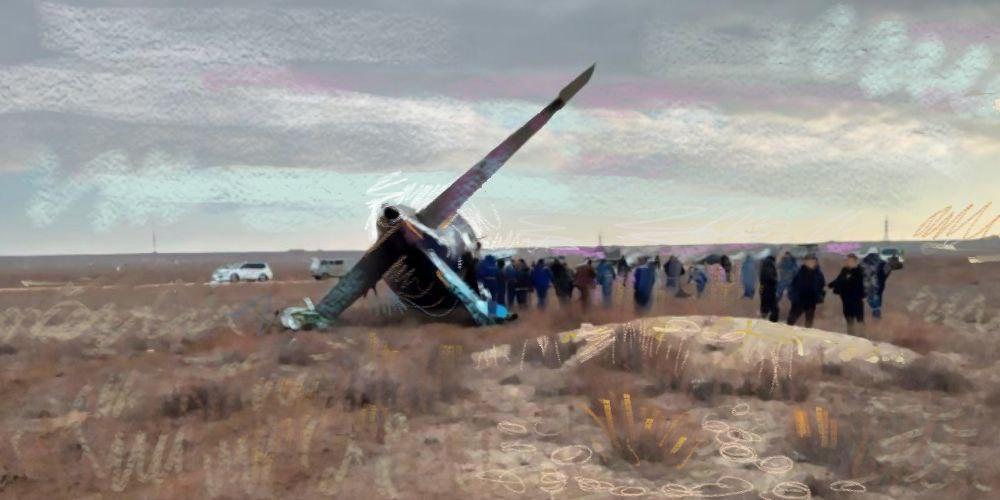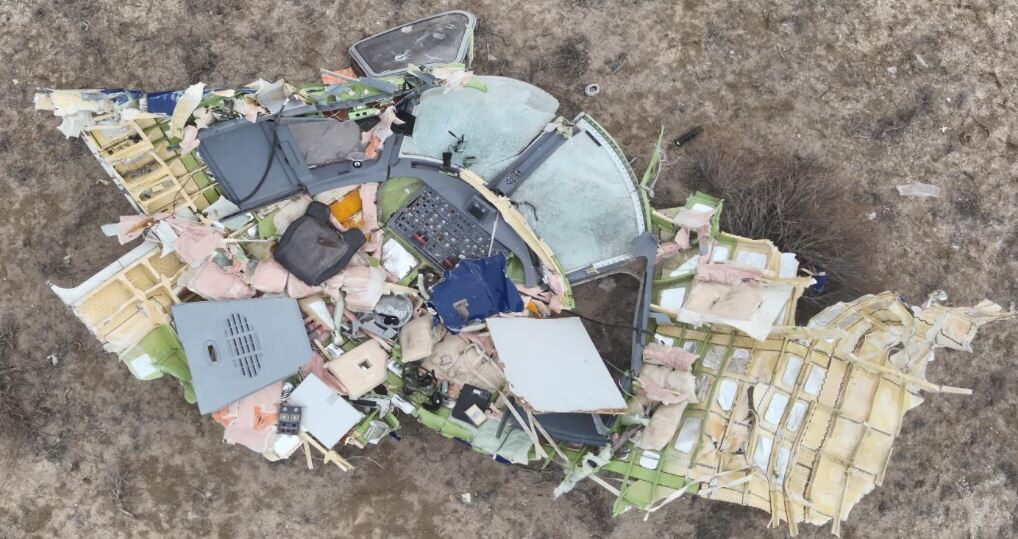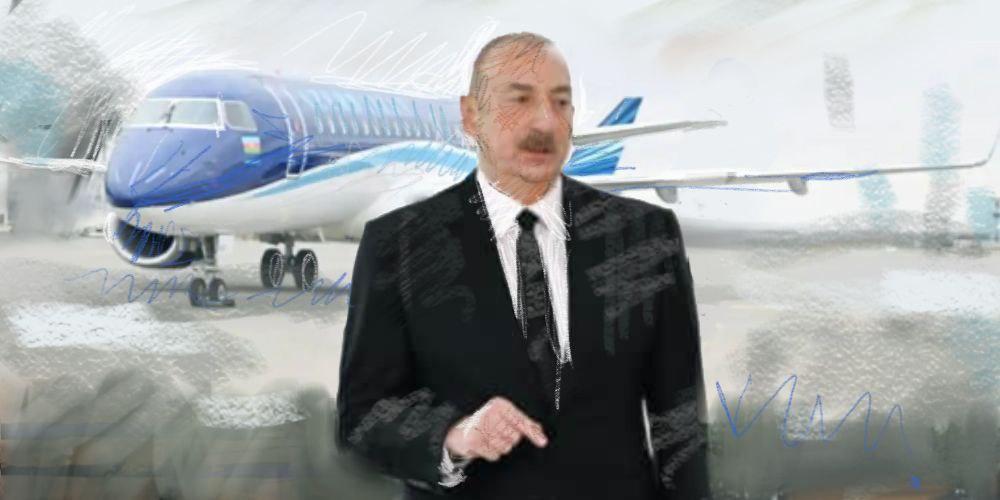When an Azerbaijan Airlines passenger plane crashed in Kazakhstan on Dec. 25, Junior Sgt. Nurlan Botagarin reacted quickly. He raced to the wreckage in his car and frantically pushed past debris into the fuselage to help survivors.
“The rear part of the plane had overturned, and the people inside were tangled together, unable to get out,” the Kazakh military serviceman said. “At that moment, I broke through the obstructing parts and equipment of the plane and entered inside. I started rescuing the passengers.”
Was Botagarin a hero for what he did, possibly risking his own life in the event of an additional explosion and fire while he was scrambling through the wreckage of Flight J2-8243? Some people say yes. He doesn’t think so.
Heroes or not, some people showed courage and compassion on the day of the Embraer 190 plane crash that killed 38 people and left 29 survivors in Aktau, Kazakhstan, marking a bright spot in the fog of grief and international intrigue over how the disaster unfolded. Azerbaijan says the plane was accidentally hit by Russian ground fire before its planned landing in Russia-controlled Chechnya; President Vladimir Putin of Russia, which is at war with Ukraine, has apologized without confirming Azerbaijan’s account. Kazakhstan is leading the investigation.
The human loss in such a calamity and the alleged responsibility of any perpetrators can overshadow the exemplary conduct of some of those involved in the moment. But here are some of the people who did what they could and will be remembered for it:
THE FLIGHT CREW:
Capt. Igor Kshnyakin, co-pilot Aleksandr Kalyaninov and flight attendant Hokuma Aliyeva died in the crash.
Aviation analysts say the pilots’ struggle to steer the badly damaged aircraft hundreds of kilometers across the Caspian Sea to a landing on flat terrain near Aktau airport was critical to the survival of some of those aboard as well as the likelihood that what exactly happened will be learned in the investigation. Kazakhstan sent the plane’s flight recorders to Brazil, where Embraer aircraft are made, for assessment. The cockpit voice recordings, if they are released, will reveal more to the world about the desperate efforts of the pilots to control the plane and get their passengers to safety.
“This particular aircraft is equipped with a recorder that captures two hours of crew and aircraft activity. The investigation will have a nearly complete picture of events,” said Talgat Lastaev, Kazakhstan’s vice transport minister. He was quoted by the Kazinform news agency.
At a ceremony in Baku, the three crewmembers who died were awarded with the title “National Hero of Azerbaijan.” Two surviving flight attendants, Zulfugar Asadov and Aydan Rahimli, also received honors.
“I must specifically acknowledge the female crew members. They themselves were in a state of stress, but look how humanely they acted to calm the passengers and prevent chaos inside the plane,” Azerbaijan’s President Ilham Aliyev said. In a video taken by a passenger, a flight attendant is heard trying to assure people on the plane that things will be OK, though tension in her voice is evident.
THE BLOOD DONORS:
About 1,500 people gave a total of 800 liters of blood across Kazakhstan in response to an emergency appeal to help injured survivors of the Azerbaijan Airlines crash.
They included some 600 donors in Astana and another 490 in Aktau, the Ministry of Health said.
It said “ordinary citizens and compatriots from different regions responded immediately and compassionately to the tragedy.”
Injuries suffered by the survivors included head, brain and chest injuries. But many medical teams got to the crash site within 10 minutes of the impact and their fast response time appears to have played a key role in saving lives.
Bundled against the cold, people also left flowers and prayed outside the Azerbaijani embassy in the Kazakh capital of Astana, a gesture of empathy that was appreciated in Azerbaijan, a country in mourning.
“We are together with you,” read a sign left at the embassy fence.
THE SERVICEMAN:
Botagarin, a junior sergeant at an air force base in Aktau, was the first person to arrive at the scene of the crash near the city’s airport, Kazakhstan’s Ministry of Defense said.
In an interview posted on Telegram by the ministry, Botagarin described how he was on duty when he and his colleagues saw the plane passing directly over their work area, flying erratically and moving up and down before it crashed.
When he arrived at the crash site, Botagarin saw a young, bleeding passenger who was walking and appeared to be in stable condition. He directed the passenger toward a nearby emergency vehicle that had just pulled up. Then he continued running and clambered into the wreckage to get people out and hand them off to other responders.
“After rescuing several individuals, I was completely exhausted. I kept working until I could no longer continue,” Botagarin said. “I realized that the people trapped under heavy debris needed larger equipment for their rescue. I then moved toward the burning part of the plane for the first time, hoping to find any survivors.”
However, he didn’t find any survivors in the front part of the plane that had burst into flames when it hit the ground. The serviceman went about collecting the belongings and ID documents of the dead.
“I don’t consider myself a hero for what I did,” said Botagarin, who has served in the military since 2017 and has two children. “In my opinion, every citizen of Kazakhstan, especially every military servicemember, has the duty to act in such situations.”
After medical teams and other emergency workers took over at the crash site, the military man quietly returned to his post









